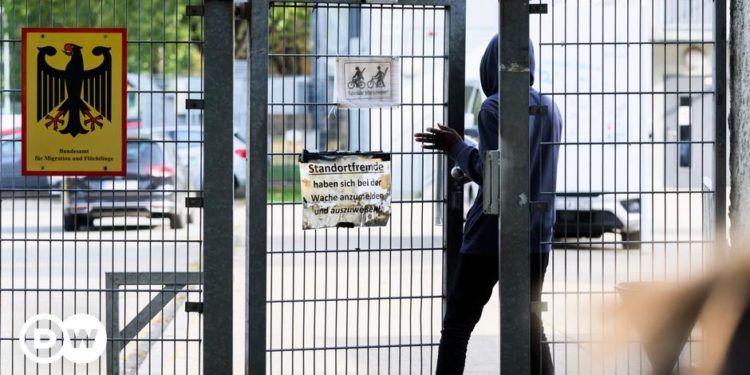The date January 29, 2025 will be remembered for a long time in Germany. The conservative union comprising the Christian Democratic Union and Christian Social Union, the largest opposition force in the Bundestag, put forward a “five-point plan” to toughen asylum policy.
The center-left Social Democratic Party (SPD) and Greens, who formed a minority government after the collapse of the so-called traffic light coalition, voted against it, as did the Left Party.
Since the CDU/CSU could not have achieved a majority for its proposal with the sole support of the neoliberal Free Democratic Party (FDP), the .
Friedrich Merz, the Union’s candidate for chancellor, , breaking long-time assurances not to do so. Merz said it was important “to do the right thing, even if the wrong people agreed.”
Around 68% of Germans believe that the country should take in fewer refugees, according to the latest Deutschlandtrend monthly survey conducted by public broadcaster ARD. About 22% believe that the current level of admissions should be maintained, while only 3% could imagine taking in more refugees.
Dispute over border controls
Among other things, the proposed plan tabled by the CDU/CSU calls for “permanent border controls” with neighboring countries as well as the “rejection of all attempts at illegal entry without exception.” This rule should also apply to those seeking asylum, .
Although the motion was adopted in the Bundestag, it is not legally binding and merely a political declaration of intent. However, the Deutschlandtrend survey shows that a majority of Germans would approve of the conservative Union’s demands.
Around 67% of respondents would be in favor of permanent border controls and 57% want Germany to refuse entry to people without valid entry documents — even if they plan to apply for asylum.
However, it is still unclear whether such measures would be compatible with EU law. They have already been criticized at a meeting of EU interior ministers in Warsaw.
The guarantees free movement to more than 450 million EU citizens, along with non-EU nationals living in the EU or anyone legally present in the EU, without being subject to border checks.
In Germany, the federal since the fall with the aim of reducing irregular immigration. However, the mandate for those checks is due to end in March 2025.
Luxembourg has announced it would lodge an objection with the EU Commission if Germany applied for an extension of its existing controls. Spain has also been critical, saying that borders in the Schengen Area should remain open as a matter of principle.
Despite the ongoing controls at Germany’s borders, only a minority of those surveyed in the Deutschlandtrend survey believe that Germany has the way in which refugees enter the country under control. Only one in ten people think the authorities are carrying out adequate identity checks or documenting the numbers correctly.
Germany’s Interior Minister Nancy Faeser (SPD) assured her EU counterparts that Germany would continue to focus on Europe-wide solutions: “Our top priority remains the quickest possible implementation of the EU’s Common Pact on Asylum and Migration,” Faeser said in Warsaw. She also pleaded for a uniform approach to deportations across the bloc. “An effective return system at the European level is imperative,” she emphasized.
Most Germans agree with Interior Minister Faeser. Of those surveyed, 61% believe the refugee crisis should be handled using joint European solutions. Unilateral action by individual member states is only backed by a majority of AfD party supporters.
Pessimistic mood among voters
Three weeks ahead of Germany’s federal election, the general mood among German citizens is clearly pessimistic. For 83% of those polled, the current situation in Germany is a cause for concern. Only 13% of respondents see reasons for optimism.
Beyond the issue of immigration, Germany’s economic situation is of particular cause for concern; more than a quarter identified both issues. Around 20% are worried about armed conflicts around the world and 18% are worried about the shift to the right in society.
One in four of those polled feels that none of the German political parties currently provide any reason to be optimistic. Only 23% have confidence in the CDU/CSU, currently leading in election polls; only 21% see Friedrich Merz as a possible future chancellor.
Only half of voters have made up their minds
Were a new Bundestag to be elected next Sunday, the survey shows that the CDU/CSU would receive 30% (-1) of the vote, the SPD would remain unchanged at 15%, and the Greens would reach 15% (+1). The AfD would achieve 20% support and the Left Party 5%. The FDP and BSW would fall just short of the 5% threshold.
The approval ratings can still change before election day on February 23: a good one in five eligible voters (21%) say that their current party preference could still change by election day.
Just over half of eligible voters have already made up their minds. Around one in four (23%) are inclined not to vote or have so far not shown any inclination towards a particular party.
The post Immigration: German voters want to accept fewer refugees appeared first on Deutsche Welle.



















